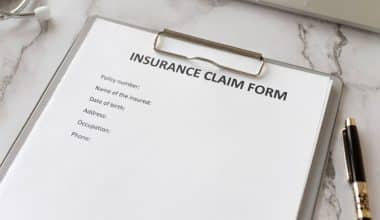Have you ever wondered what exactly is covered by collision insurance? Whether you’re a seasoned driver or a new car owner, understanding the extent of your insurance coverage is crucial. In this article, we will delve into the details of collision insurance on a car and explore what it covers in 2023. From minor fender benders to major accidents, collision insurance plays a vital role in protecting your vehicle and your finances. By the end of this article, you will have a comprehensive understanding of collision insurance and be better equipped to make informed decisions regarding your auto insurance policy.
What Is Collision Insurance Cover
Collision insurance covers the cost of repairing or replacing your own vehicle if it is damaged in a collision, regardless of who is at fault in the accident. This can include accidents with another vehicle, hitting an object like a tree or building, or rolling over your vehicle. Collision insurance is not required by law, but it is typically recommended if you are financing or leasing a vehicle.
Is collision coverage better than full coverage?
When comparing collision coverage and full coverage, it’s important to understand their differences and what they cover.
Collision coverage is a type of auto insurance that pays for damage to your car if you are involved in a collision with another object or vehicle. It covers the cost of repairs or, if the damage is extensive, the actual cash value of your vehicle. Collision coverage does not typically cover damage to your vehicle from other causes such as theft, vandalism, or natural disasters.
On the other hand, full coverage is not a specific type of coverage but a combination of coverages that includes liability insurance, collision coverage, and comprehensive coverage. Comprehensive coverage protects against damage to your vehicle from non-collision events, such as theft, vandalism, fire, or severe weather. Whether collision coverage is better than full coverage depends on your individual needs and circumstances.
Full coverage may cover more risks, like car theft and non-collision damage. However, comprehensive coverage may cost more because of its wider scope. If you only want insurance for collision damages and have no concern about additional hazards, collision coverage may be enough. This coverage usually costs less than full coverage.
When choosing between collision and full coverage, consider your budget, vehicle value, and risk tolerance. Personal guidance from an insurance representative may also be helpful. Please read the terms and conditions of the insurance policy you’re considering because coverage possibilities differ.
What is Collision Insurance
Collision insurance is an optional type of insurance coverage that pays to repair or replace your car if it’s damaged in a collision with another vehicle or object. It doesn’t matter if the policyholder is at fault or not; collision coverage will pay for repairs to their vehicle.
Collision insurance typically has a deductible, which means the policyholder pays a predetermined amount out of pocket before the insurance kicks in. It’s important to note that collision insurance only covers damage to your car and does not cover injuries or damage to other vehicles or property.
Is it better to have $500 deductible or $1000?
When considering a health insurance deductible, there are pros and cons to both a $500 and $1000 deductible. Plans with lower deductibles generally offer more predictable costs and more comprehensive coverage but come with higher premiums. Higher deductibles mean lower premiums but more out-of-pocket costs if medical services are needed.
One study found that choosing higher deductibles tends to result in saving more money over time, with a median savings of about $700 per year compared to choosing lower deductibles. However, this depends on an individual’s financial situation and ability to pay for medical expenses out-of-pocket.
Ultimately, the choice between a $500 or $1000 deductible will depend on one’s personal financial situation and comfort level with risk. If an individual is able to handle a higher out-of-pocket cost in the event of a medical emergency, opting for a higher-deductible plan may lead to lower premiums and greater savings over time.
What is a good collision deductible?
Consider your driving record, your financial condition, and the value of your vehicle to arrive at an appropriate collision deductible. Collision deductibles can vary widely, typically ranging from $100 to $2,000 or more. However, most drivers choose a deductible in the range of $500.
While a greater deductible may lower your insurance rate, it will cost you more to file a claim. On the other hand, selecting a lower deductible will result in a higher insurance premium but lower out-of-pocket costs for repairs after an accident. Ultimately, the right collision deductible for you depends on your personal circumstances.
Check your car’s value, your budget, and your comfort level with increased payments before obtaining vehicle insurance. We recommend consulting with your insurance provider or an insurance agent to discuss the best collision deductible options for your specific situation.
What Does Collision Insurance Cover on a Car
Collision insurance covers the cost of repairing or replacing your car if it is damaged in a collision or accident. Examples of accidents or collisions that collision insurance may cover include accidents with another vehicle or collisions with structures such as fences, trees, or mailboxes. However, collision insurance does not cover damage to your vehicle that is not related to driving, such as hail damage or theft.
The law doesn’t need collision insurance, but your lender may require it if you have a car loan or lease. Additionally, collision insurance is typically subject to a deductible, which is the amount you are responsible for paying out of pocket before the insurance coverage kicks in.
What distinguishes a collision from property damage?
Although they address distinct risks, vehicle insurance policies can protect you in the event of a collision and property damage.
Collision coverage usually involves damages to the policyholder’s own vehicle resulting from a collision, regardless of who is at fault. For instance, if you collide with another car, a tree, a guardrail, or any other object, collision coverage can help pay for the repairs or the replacement of your vehicle.
On the other hand, property damage liability coverage usually pertains to damages that the policyholder accidentally causes to someone else’s property, such as their car, home, fence, or mailbox. In this case, the policyholder’s insurance company may compensate the other party for the costs of repairs or replacement, up to the policy limits.
In summary, collision coverage mainly protects the policyholder’s own vehicle, while property damage liability coverage protects properties that the policyholder might damage.
Why is collision insurance the most expensive?
Collision insurance is often the most expensive type of car insurance because it covers repairs or replacement of your own vehicle in case of an accident where you are at fault, which is a more common type of claim. Additionally, the cost of both parts and labor has been rising, driving up collision repair costs. Finally, the number of serious car accidents has been increasing, resulting in more costly claims for insurers and leading to higher collision insurance premiums.
When to Drop Collision Insurance
When to drop collision insurance depends on several factors. One common consideration is the value of your vehicle. If your car holds minimal value and the cost of collision coverage is high, it may not be worth carrying this type of insurance. Another scenario where dropping collision coverage might make sense is if your vehicle is paid off and you have sufficient funds to cover potential repairs or replacements in the event of an accident.
To determine when it’s appropriate to drop collision insurance, you should assess the current value of your vehicle and compare it with the cost of the coverage. If an insurance claim settlement is far smaller than your premiums and deductibles, you may choose to forgo collision coverage.
Note that you should carefully evaluate your financial situation, the value of your vehicle, and your risk tolerance before making the decision to drop collision insurance. It may be wise to consult with an insurance professional to receive individual guidance on the basis of your specific circumstances.
What does a $1000 deductible mean for collision insurance?
If you need to submit a claim after a collision, you must pay the first $1000 of the repair costs. Once you have met the deductible amount, the insurance company will cover the remaining costs, up to the policy limits. For example, if the total repair costs for an accident are $5000 and you have a $1000 deductible, you would need to pay $1000 and the insurance company would cover the remaining $4000.
Choosing a higher deductible, such as $1000, can often result in lower monthly insurance premiums. One must take into account their financial circumstances and capacity to cover the deductible in the case of a claim. Additionally, it’s worth noting that the deductible for collision insurance is separate from deductibles for other types of coverage, such as comprehensive or uninsured motorist property damage coverage.
Should I lower my collision deductible?
When considering whether to lower your collision deductible, there are several factors to take into account. One important factor is your financial situation. When making a claim, lowering your deductible may reduce upfront costs, but your insurance company will pay less. Reduce your deductible if you can afford to pay more out of pocket in the event of an accident.
Another factor to consider is the value of your vehicle. If your vehicle has a low market value, it may not be cost-effective to have a low deductible. In some cases, the cost of repairing the damages may be close to or even exceed the value of the vehicle. In such situations, a lower deductible may not provide significant benefits.
Additionally, it’s important to review your insurance policy and understand the terms and conditions. Your choice to reduce your collision deductible may be impacted by policy advantages like deductible waivers or accident forgiveness.
What is the definition of a car collision?
A car collision is defined as an incident where a motor vehicle collides with another object. In addition to other cars, stationary objects like trees or buildings may be involved in these incidents.
Comprehensive vs. Collision Insurance
Two distinct forms of automobile insurance, comprehensive and collision, offer varying degrees of protection for your car.
Comprehensive insurance provides coverage for harm to your car resulting from non-collision-related incidents like theft, vandalism, fire, or natural catastrophes. It provides coverage for non-collision-related incidents that can result in damage to your car. Comprehensive insurance covers situations such as theft, hail or falling objects causing damage, and hitting an animal causing damage.
On the other hand, collision insurance specifically covers damage to your vehicle resulting from collisions with other vehicles or objects. It pays for the cost to fix or replace your vehicle in the event that you or another driver without insurance causes an accident. Collision coverage is not typically required by law, but it may be required if you have a loan or lease on your vehicle.
In summary, comprehensive insurance covers damage that is not caused by collisions, while collision insurance covers damage resulting from collisions with other vehicles or objects.
What is the difference between collision and comprehensive deductible?
The Collision Deductible is applied to losses resulting from impacts that cause harm to your car. For example, a collision with a vehicle, hit and run, etc. Comprehensive Deductible is referred to as damage to your vehicle that’s not caused by collision.
Which person would most benefit from having collision insurance?
Everyone can benefit from Collision Insurance, but it is especially important for inexperienced drivers who are more at risk of causing an accident. Those who own expensive cars will also benefit from it.
Conclusion
Collision insurance provides coverage for damages to your vehicle resulting from a collision with another vehicle or object. If you have a valuable vehicle or live in an accident-prone location, it’s crucial to consider. Collision insurance typically covers the cost of repairs or replacement for your vehicle, up to the policy’s limits. However, it is important to review your policy carefully to understand any limitations or exclusions that may apply. Ultimately, having collision insurance can provide peace of mind and financial protection in the event of an accident. So, before hitting the road, take the time to evaluate your insurance needs and consider adding collision coverage to your policy.






